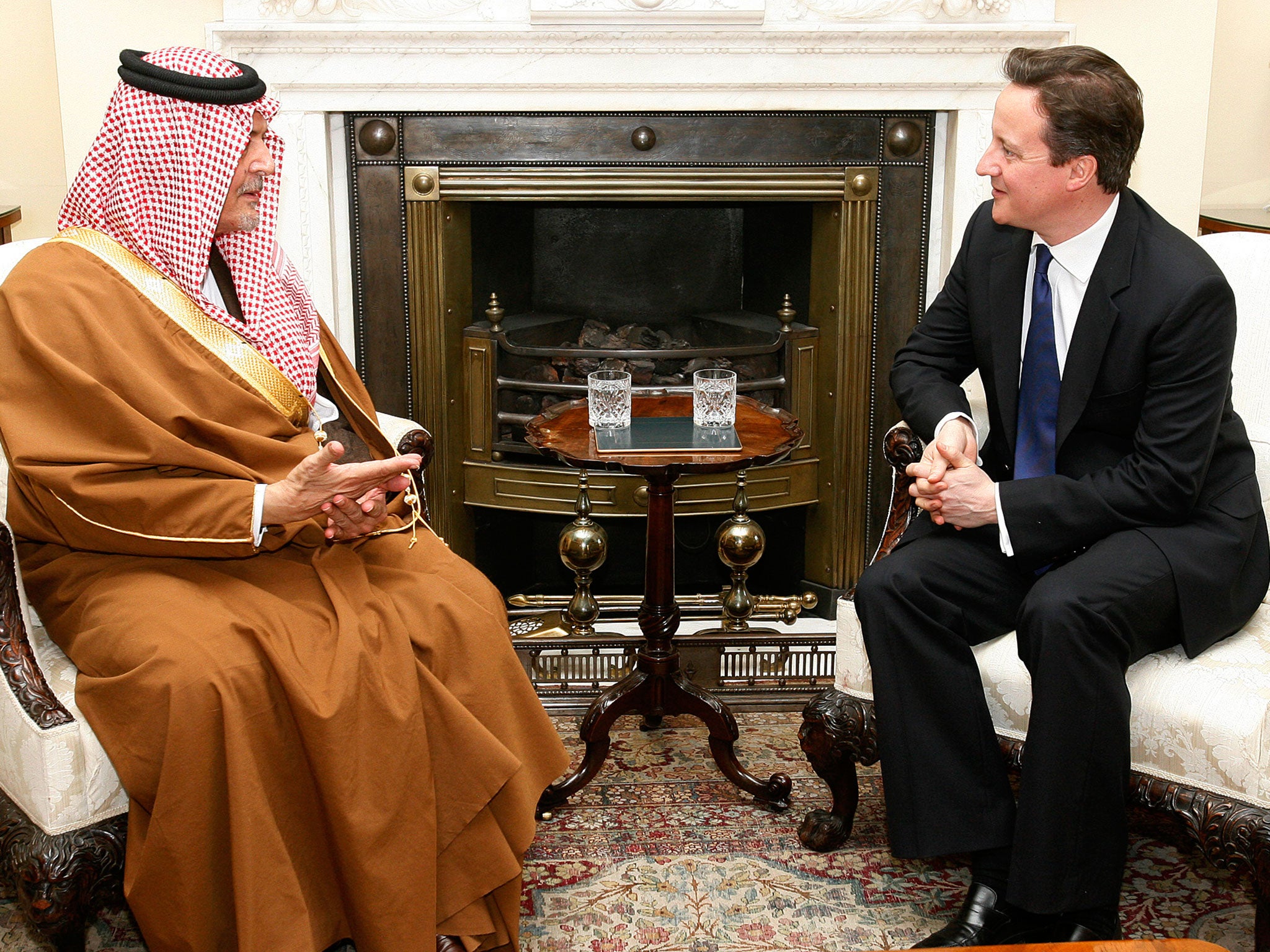Saudi Arabia executions Q&A: Will the UK add its voice to the outrage being expressed?
UK governments have favoured the value of the Saudi-UK relationship, rather than being concerned with moral difficulties

Saudi critics have warned that the execution of a Shia cleric will have “repercussions”. Is this rhetoric or a serious tipping point?
There are both immediate and longer-term difficulties for the House of Saud royal family, from inside and outside the Saudi borders. Sheikh Nimr al-Nimr was a key figure in the Arab Spring pro-democracy protests of 2011. From the oil-rich Eastern Province of Saudi Arabia, where the Shia-majority are seen as politically peripheral to the dominance of Riyadh, his death will do little to quell internal protests, and will also serve as a focal point for anti-Saudi anger from Iran, Yemen, the Lebanon and elsewhere.
Will the UK add its voice to the outrage being expressed?
If it follows precedent, Downing Street will be hesitant and likely to limit its comments in diplomatic terminology. UK governments since the Saudi’s accelerating oil wealth in 1960s, have favoured the economic value of the Saudi-UK relationship, rather than being overly concerned with moral difficulties.
So numbers matter?
They do, and they are big numbers. Some 50,000 jobs in the UK and Saudi are commercially linked. Close to £100bn of private Saudi wealth is invested in the UK economy, with UK exports to Saudi over the last three years estimated at £12bn.
The relationship has a long history?
The British have sanctioned the dominance of the House of Saud since it declared itself a kingdom in 1932. When Saudi oil revenue went from $300m in 1960 to $116bn by 1981, Britain didn’t hesitate to sell “the Arab nation” what it wanted.
What has been the big seller then?
In 1984 defence secretary, Michael Heseltine, said Britain had offered the Saudis “all the weapons it has”. The second phase alone of Al Yamamah deal was worth $50bn.
So the benefits are self-evident and the relationship continues?
Not quite. Yes, the relationship with the Saudis is a financial one, but earlier this year David Cameron acknowledged the security benefits, citing that Saudi intelligence had helped thwart terrorist attacks. In this newspaper in March, it was revealed that information obtained by torture in Saudi Arabia had helped stop an advanced bombing plan in the UK.
We regard torture as illegal. We continue to sell the Saudis weapons and missiles that are hitting civilian targets in the Yemen, putting the UK at risk of breaking international criminal law. Are we compromising our so-called British values?
Not all the UK political system turns a blind eye. The all-party Arms Export Committee of MPs recently recommended that the Government deliver defined reasons for continuing to award expert licences to Saudi Arabia. That would mean the Government explaining why 17 categories of intelligence and surveillance equipment make up the Saudi’s shopping list. It suggests not everyone is happy.
But if the Saudis will pay, we will continue to sell, regardless of how uncomfortable executions and the rest get in the way?
That assumes the Saudis can continue to pay at the levels they have been able to over the last half century. Given the predicted future of oil markets, it has been estimated the oil-dominated Saudi economy will be in trouble within a decade. Their “pump and dump” strategy of keeping prices low to ward off and destroy competition from the US shale industry, isn’t working. The Bank of America recently said that OPEC, which once controlled global oil prices, was effectively dead, with the Saudis trapped and the kingdom under threat.
So Saudi Arabia has to change?
Forced to change would a better description.
Join our commenting forum
Join thought-provoking conversations, follow other Independent readers and see their replies
Comments
Bookmark popover
Removed from bookmarks